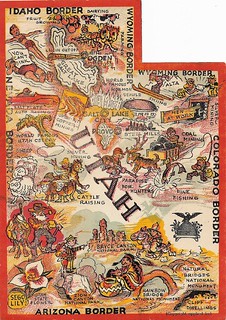Is Now the Best Time to Open an Auto Dealership in Utah? Here Is How You Can Do It

Carpe diem, or seize the moment, is a wise saying, but does it hold true when it comes to opening an Utah auto dealership now?
Considering recent proposals to make the Utah auto dealership market less restrictive, now could be the perfect time to start your own dealership.
Launching a new car sales business is a serious endeavor. There are various steps that you need to take, such as obtaining your license and surety bond. Before you set off on your new business journey, make sure you have all the details straight.
We’ve prepared a succinct guide to help you out in the process, so let’s delve into it.
Why now is the right time
There’s a lot of evidence that new, business-friendly reforms are on the horizon for Utah auto dealers. Utah laws relating to the car dealership industry have been seen by some as too protecting and restrictive.
For example, a law from 1991 states that new dealerships can’t be opened within 15 miles of an existing dealership. A special board needs to permit that. Another rule imposes on dealerships to close one day per week, usually Sunday.
The currently proposed legal changes are likely to make Utah’s dealership market less restrictive and more accessible for new dealers. If you’ve been thinking about opening an auto dealership in Utah, why not make the best of this opportunity?
Your Utah auto dealership license
The time may be right to start your auto dealership, but what’s the process for launching your business?
Your first step should be to get an auto dealer license. The entity issuing licenses is the Motor Vehicle Enforcement Division (MVED) of the Utah State Tax Commission. You will have to fill a Bonded Motor Vehicle Business Application.
You can obtain different kinds of licenses, but the main ones are for selling new vehicles, used vehicles or motorcycles and small trailers. The licensing fees for each one are $127 for new or used vehicles and $51 for motorcycles and small trailers.
The other licenses include special equipment dealer, body shop, distributor or factory branch, manufacturer or re-manufacturer, transporter, dismantler or crusher.
The dealer plates fee is $12 and fingerprinting is $25.
License Requirements
Besides completing the application form and paying relevant fees, you’ll need to fulfill the State of Utah requirements before you get your license. Make sure you follow the steps diligently; otherwise you risk getting your application refused.
Your dealership location should be solely devoted to selling cars. This means that it should be zoned for this purpose. The state also requires that you have at least three spots for displaying vehicles, plus an office space for all business-related activities. When you’re applying, you’ll have to submit photos of your location where your dealership sign is clearly visible.
You need to obtain also a Sales Tax Number from the Utah State Tax Commission, which requires you to also have a federal ID number for your dealership. The trade name of your business should be filed with the Utah Department of Commerce.
All owners, partners and corporate officers will need to submit their photos and fingerprints too. They are also required to pass an eight-hour training seminar.
Finally, you’ll also have to get a surety bond in order to receive your license.
Getting bonded
An indispensable step of starting your dealership is getting your Utah auto dealer bond. As just mentioned, it’s a prerequisite for obtaining your license.
The dealer bond is a contract between your dealership, the state and the surety provider. It guarantees your compliance with state regulations, thus protecting the general audience from potential harmful practices of your business. By getting bonded, you get a credit of trust for your dealership.
The required used or new vehicle dealer bond in Utah is $75,000, while for motorcycle and small trailers license you’ll need a $10,000 bond. You’ll have to pay only a percentage of the bond amount. The premium is usually between 1%-4% of it.
To get bonded, you’ll have to apply with a surety provider that will examine your business and financial situation. Your bond premium will depend on your overall status. Especially important is your credit score, as the higher it is, the less you’ll need to pay for your bond. Still, you areable to get bonded even with bad credit if you turn to the right surety.
Get your free, no-obligations quote with Bryant Surety Bonds and start your bonding process today.



